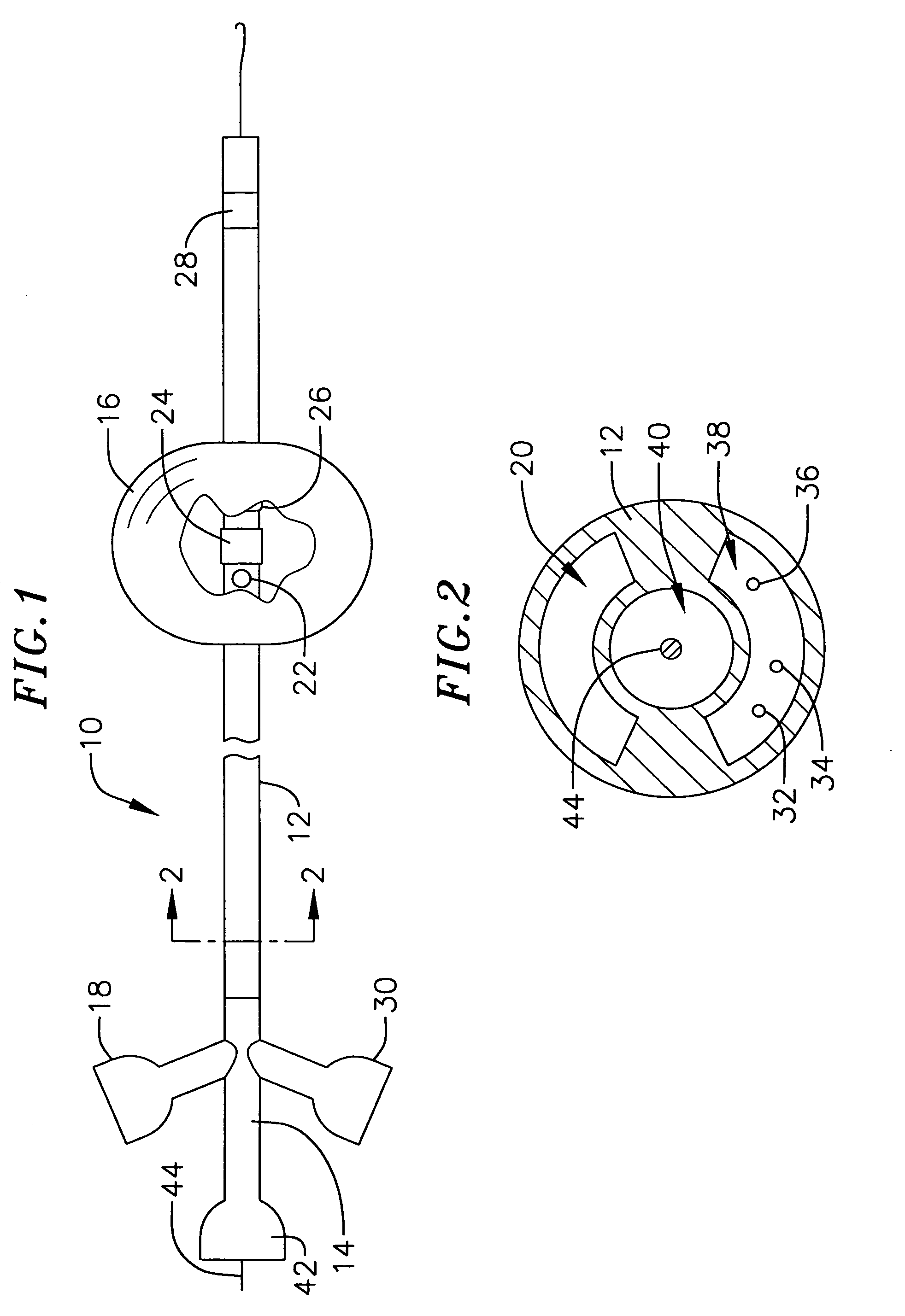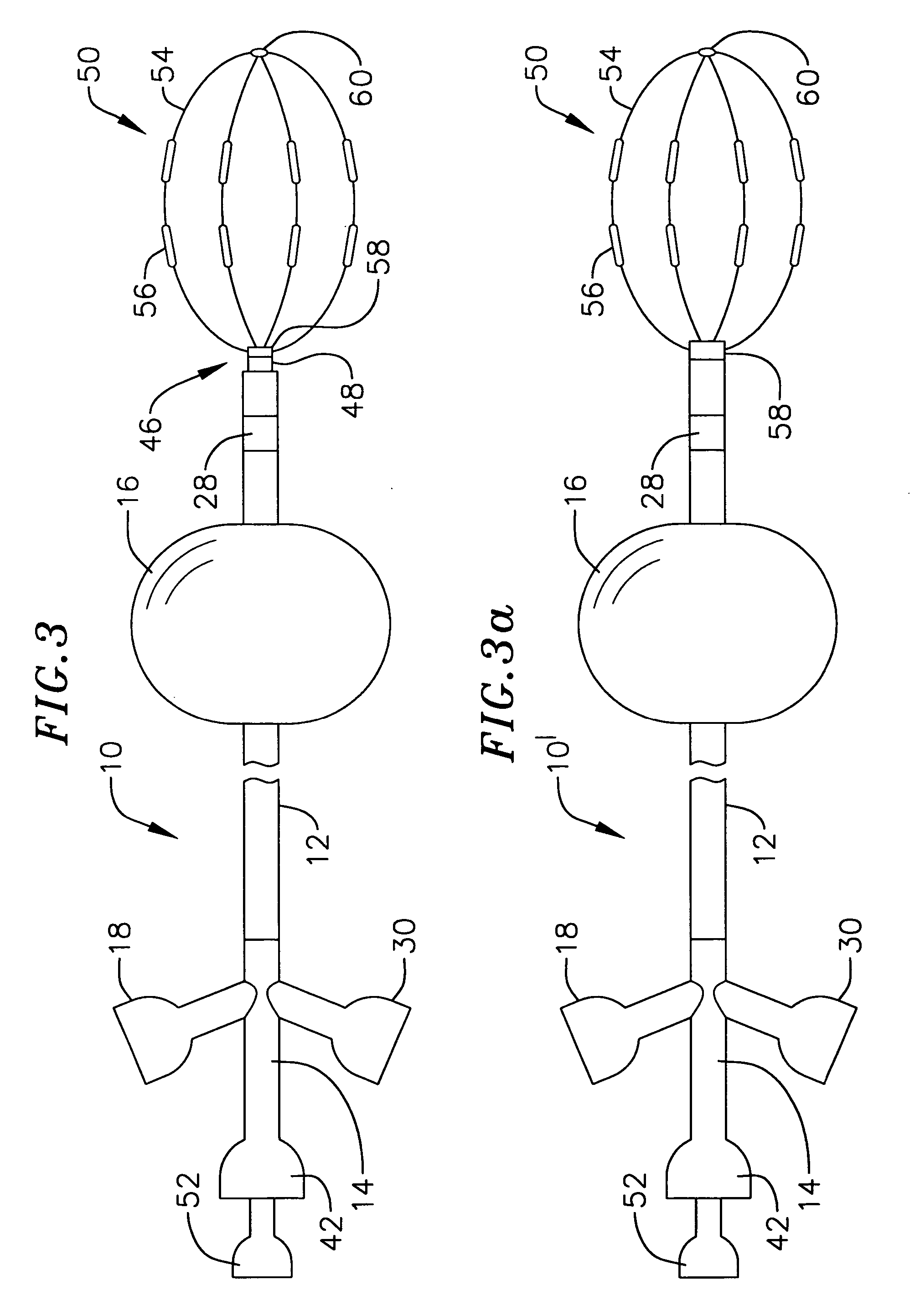Apparatus for mapping and coagulating soft tissue in or around body orifices
a technology of soft tissue and applicator, which is applied in the field of medical devices, can solve the problems of affecting the normal activation of the left and right atria, and suffering consequences
- Summary
- Abstract
- Description
- Claims
- Application Information
AI Technical Summary
Benefits of technology
Problems solved by technology
Method used
Image
Examples
Embodiment Construction
[0045] The following is a detailed description of the best presently known modes of carrying out the inventions. This description is not to be taken in a limiting sense, but is made merely for the purpose of illustrating the general principles of the inventions.
[0046] The detailed description of the preferred embodiments is organized as follows: [0047] I. Introduction [0048] II. Inflatable Structures [0049] III. Hoop Structures [0050] IV. Hoop Structure Electrodes, Temperature Sensing and Power Control
[0051] The section titles and overall organization of the present detailed description are for the purpose of convenience only and are not intended to limit the present inventions.
I. Introduction
[0052] The present inventions may be used within body lumens, chambers or cavities for diagnostic or therapeutic purposes in those instance where access to interior bodily regions is obtained through, for example, the vascular system or alimentary canal and without complex invasive surgica...
PUM
 Login to View More
Login to View More Abstract
Description
Claims
Application Information
 Login to View More
Login to View More - R&D
- Intellectual Property
- Life Sciences
- Materials
- Tech Scout
- Unparalleled Data Quality
- Higher Quality Content
- 60% Fewer Hallucinations
Browse by: Latest US Patents, China's latest patents, Technical Efficacy Thesaurus, Application Domain, Technology Topic, Popular Technical Reports.
© 2025 PatSnap. All rights reserved.Legal|Privacy policy|Modern Slavery Act Transparency Statement|Sitemap|About US| Contact US: help@patsnap.com



